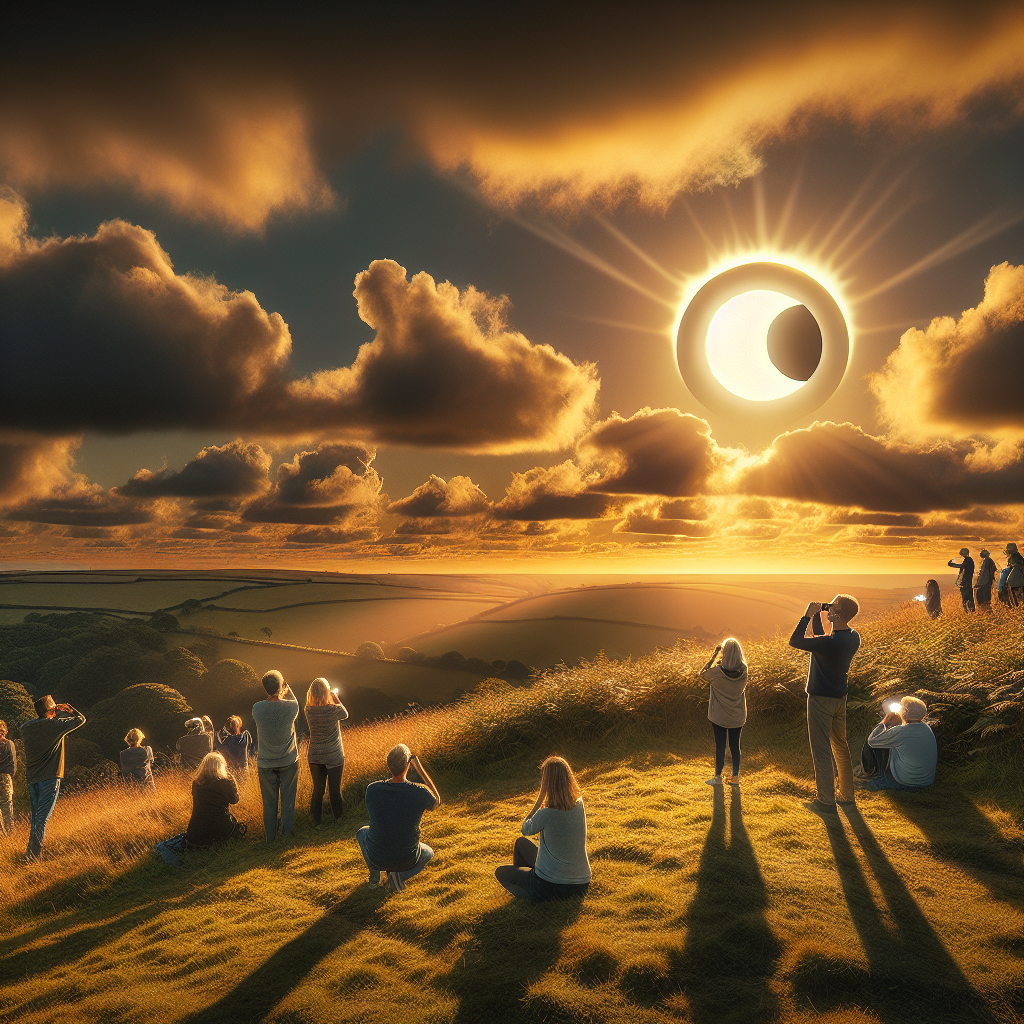Listen to this post: Partial Solar Eclipse Thrills Skywatchers in Devon & Cornwall
Partial Solar Eclipse Thrills Skywatchers in Devon & Cornwall
Summary
Residents and visitors across Devon and Cornwall were treated to a mesmerizing celestial display as a partial solar eclipse graced the skies earlier this week. Skywatchers flocked to local high points and coastal viewing spots hoping to catch a glimpse of the rare spectacle, which caused the moon to partially obscure the sun, creating an enchanting sight above the English countryside.
The event unfolded under mainly clear and cooperative skies—ideal conditions for eclipse viewing in many parts of Southwest England. Amateur astronomers and curious onlookers alike used solar glasses, pinhole projectors, and even colanders to safely witness the partial eclipse, which reached its peak mid-morning.
Local observatories in both counties welcomed small groups for guided viewings, while social media platforms buzzed with user-captured images and videos of the moon sliding between the Earth and the sun. Local astronomy clubs organized pop-up events, using telescopes with solar filters to offer safe, magnified views.
The partial eclipse is part of a broader celestial pattern leading up to more significant solar phenomena expected in the coming years. While this event didn’t bring complete darkness, it served as an awe-inspiring reminder of nature’s splendor and the astronomical alignments that unite humanity in shared wonder.
Families, students, and even tourists joined in the excitement, with many expressing amazement at seeing such a phenomenon firsthand—even if just partially. Devon and Cornwall’s picturesque landscapes offered an unforgettable backdrop, enhancing the emotional and visual impact of the experience.
Analysis
Solar eclipses, even partial ones, consistently capture widespread public attention—and for good reason. They offer a rare, visceral connection with astronomical phenomena that might otherwise feel abstract or unreachable. The recent partial eclipse over Devon and Cornwall is the latest testament to our collective fascination with the cosmos and the continued growth of grassroots astronomy in the UK.
From a scientific perspective, eclipses provide opportunities not just for awe and inspiration, but also for data collection and public education. Local observatories often collaborate with schools and news organizations to spread awareness about the event and proper viewing techniques.
Events like this generate excitement around science and create teachable moments that encourage young minds to explore the universe.
Dr. Elaine Wetherford, University of Exeter Astrophysics Department
Recent years have shown a growing trend in community-driven skywatching activities. With mobile viewing technologies becoming more accessible, it’s easier than ever for people to engage with events like meteor showers, eclipses, and planetary alignments. Devon and Cornwall’s positioning makes them ideal for such celestial gatherings, with open coastlines and elevated landscapes enhancing visibility.
Here are some factors contributing to the success and increasing frequency of public interest in sky events:
- Social Media Amplification – With hashtags and live sharing, local events gain instant global exposure.
- Community Collaborations – Local councils and astronomy clubs work together to maximize accessibility.
- STEM Education Integration – Schools are increasingly incorporating live astronomical events into curriculum planning.
Looking ahead, experts are already preparing for a more dramatic solar eclipse expected to grace parts of the northern hemisphere in 2026. The recent Devon and Cornwall event serves as a preview—and a public rehearsal—for what might become one of Europe’s most celebrated astronomical spectacles this decade.
We’re entering an exciting period of celestial events—perfect for reigniting public interest in astronomy.
Charlotte Green, Royal Astronomical Society
Whether you’re a seasoned astronomer or a curious observer, now is a great time to look skyward and explore the wonders waiting beyond our atmosphere.














